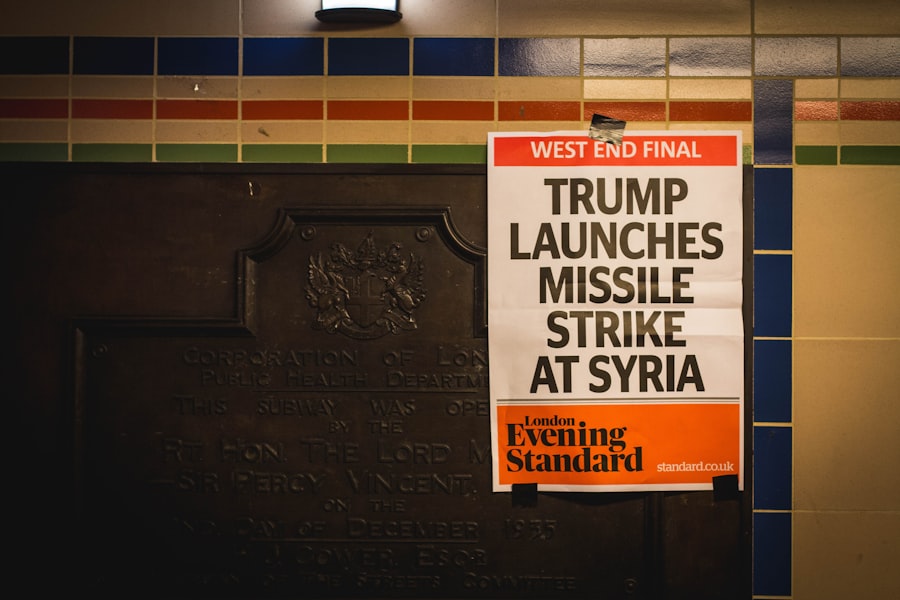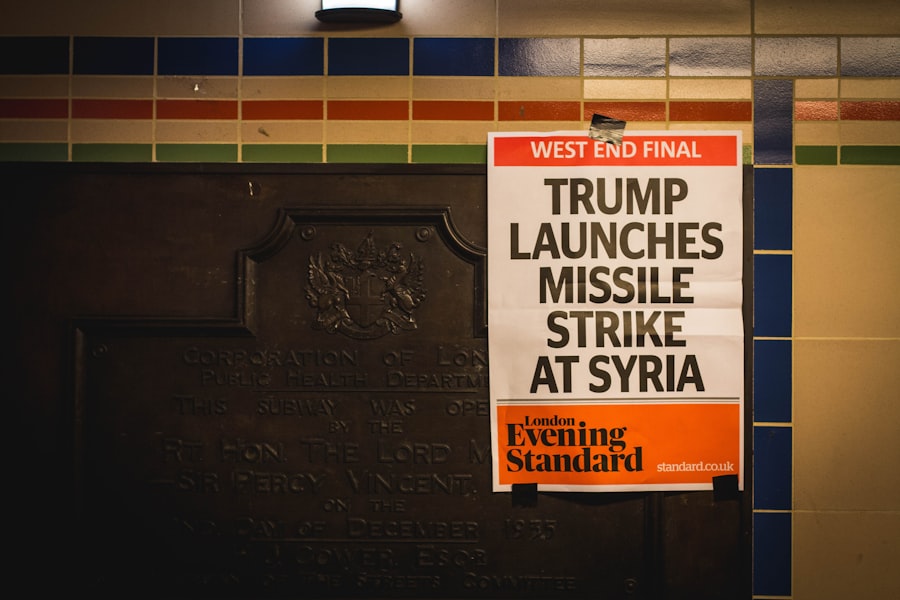The history of U.S. foreign policy is a complex tapestry woven from the threads of national interests, ideological beliefs, and historical events. From its inception, the United States has navigated a path shaped by its geographical isolation, revolutionary ideals, and the desire for expansion.
In the early years, the nation adopted a policy of isolationism, as articulated by President George Washington in his farewell address, where he cautioned against entangling alliances. This approach allowed the young republic to focus on internal development and westward expansion, culminating in the Monroe Doctrine of 1823, which asserted a sphere of influence over the Western Hemisphere and warned European powers against further colonization. As the 20th century dawned, U.S.
foreign policy began to shift dramatically in response to global events. The Spanish-American War marked a turning point, as the United States emerged as a colonial power with territories in the Caribbean and the Pacific. The two World Wars further transformed American foreign policy, leading to a commitment to internationalism and the establishment of institutions like the United Nations.
The Cold War era introduced a new paradigm characterized by ideological conflict with the Soviet Union, resulting in policies of containment and interventionism that would define U.S. actions for decades. This historical evolution reflects not only changing global dynamics but also the internal debates about America’s role on the world stage.
Key Takeaways
- US foreign policy has been shaped by historical events such as World War II, the Cold War, and the War on Terror.
- Intelligence agencies play a crucial role in shaping US foreign policy by providing information and analysis to policymakers.
- US foreign policy has a significant impact on global affairs, influencing international relations, trade, and security.
- Special interest groups, such as lobbyists and advocacy organizations, can influence US foreign policy through campaign contributions and advocacy efforts.
- Covert operations, such as espionage and sabotage, have been used by the US to achieve foreign policy objectives, often with controversial consequences.
The Role of Intelligence Agencies in Shaping US Foreign Policy
Intelligence agencies play a pivotal role in shaping U.S. foreign policy by providing critical information that informs decision-making at the highest levels of government. The Central Intelligence Agency (CIA), established in 1947, has been at the forefront of gathering and analyzing intelligence related to national security and foreign affairs.
By assessing threats and opportunities abroad, these agencies enable policymakers to make informed choices regarding military interventions, diplomatic negotiations, and economic sanctions. The intelligence community’s assessments can significantly influence public perception and legislative support for various foreign policy initiatives. Moreover, intelligence agencies often operate in secrecy, which can lead to both advantages and challenges in foreign policy formulation.
On one hand, classified information can provide a strategic edge in negotiations or military operations; on the other hand, reliance on intelligence can lead to miscalculations or overreliance on flawed data. Historical examples, such as the intelligence failures leading up to the Iraq War in 2003, underscore the potential consequences of misjudgments within the intelligence community. As global threats evolve, the role of intelligence agencies remains crucial in adapting U.S.
foreign policy to meet new challenges while balancing transparency and national security concerns.
The Impact of US Foreign Policy on Global Affairs

U.S. foreign policy has had profound implications for global affairs, shaping international relations and influencing the trajectory of nations around the world.
Initiatives such as the Marshall Plan after World War II exemplify how U.S. foreign policy can foster economic recovery and political stability in war-torn regions, ultimately contributing to a more interconnected global economy. However, U.S.
foreign policy has also faced criticism for its inconsistencies and perceived hypocrisy. While advocating for democracy abroad, the United States has sometimes supported authoritarian regimes when it aligned with its strategic interests. This duality has led to skepticism among other nations regarding American intentions and has fueled anti-American sentiment in various parts of the world.
The impact of U.S. foreign policy is thus multifaceted; it can promote stability and development while simultaneously generating backlash and resistance from those who perceive it as imperialistic or self-serving.
The Influence of Special Interest Groups on US Foreign Policy
| Special Interest Group | Influence on US Foreign Policy |
|---|---|
| AIPAC (American Israel Public Affairs Committee) | Strong influence on US policy towards Israel and Middle East |
| Big Oil Companies | Influence on US policy towards oil-producing countries |
| Defense Contractors | Influence on US military interventions and defense spending |
| Human Rights Organizations | Advocacy for human rights issues in US foreign policy |
Special interest groups wield significant influence over U.S. foreign policy through lobbying efforts, funding campaigns, and mobilizing public opinion. These groups represent a diverse array of interests, including business sectors, human rights organizations, environmental advocates, and ethnic lobbies.
Their ability to shape policy outcomes stems from their resources and expertise, which they leverage to advocate for specific agendas that align with their goals. For instance, defense contractors often lobby for increased military spending or interventionist policies that benefit their industries. The interplay between special interest groups and policymakers can lead to a dynamic where foreign policy decisions are influenced more by narrow interests than by broader national priorities.
This phenomenon raises questions about accountability and representation in democratic governance. Critics argue that such influence can result in policies that prioritize corporate profits over humanitarian concerns or national security interests. As globalization continues to blur national boundaries, the role of special interest groups in shaping U.S.
foreign policy is likely to grow more complex, necessitating ongoing scrutiny and debate about their impact on democratic processes.
The Use of Covert Operations in US Foreign Policy
Covert operations have been a controversial yet integral aspect of U.S. foreign policy since the Cold War era. These clandestine activities are designed to achieve strategic objectives without revealing direct involvement by the U.S.
government. The CIA has historically conducted covert operations ranging from regime change to espionage, often justified as necessary measures to protect national security or promote American interests abroad. Notable examples include the overthrow of Iran’s Prime Minister Mohammad Mossadegh in 1953 and support for anti-communist movements in Latin America.
While covert operations can yield short-term successes, they often carry significant risks and long-term consequences. The lack of transparency surrounding these actions can lead to unintended fallout, including destabilization of regions or backlash against U.S. interests.
Furthermore, when covert operations are exposed, they can damage America’s credibility on the global stage and erode trust among allies. As international relations become increasingly complex, the ethical implications and effectiveness of covert operations continue to be subjects of intense debate among policymakers and scholars alike.
The Role of Diplomacy in US Foreign Policy

Diplomacy serves as a cornerstone of U.S. foreign policy, providing a framework for dialogue and negotiation between nations. Through diplomatic channels, the United States seeks to resolve conflicts, build alliances, and promote its values on the global stage.
High-profile summits between U.S. presidents and foreign leaders exemplify how diplomacy can facilitate cooperation on pressing issues such as nuclear proliferation, climate change, and trade agreements. The ability to engage in constructive dialogue is essential for addressing complex global challenges that require multilateral solutions.
However, diplomacy is not without its challenges. Cultural differences, historical grievances, and competing national interests can complicate negotiations and hinder progress toward mutual understanding. Additionally, domestic political pressures can influence diplomatic efforts, as leaders must balance international commitments with constituents’ expectations at home.
Despite these obstacles, effective diplomacy remains vital for maintaining peace and stability in an increasingly interconnected world.
The Relationship Between US Foreign Policy and National Security
The relationship between U.S. foreign policy and national security is deeply intertwined, as decisions made on the international front directly impact the safety and well-being of American citizens. National security concerns often drive foreign policy initiatives, whether through military interventions aimed at countering perceived threats or diplomatic efforts designed to foster stability in volatile regions.
The post-9/11 era marked a significant shift in this relationship, as terrorism became a central focus of U.S. foreign policy, leading to prolonged military engagements in Afghanistan and Iraq. As global threats evolve—ranging from cyber warfare to climate change—U.S.
foreign policy must adapt to address these emerging challenges while safeguarding national security interests. This dynamic requires a comprehensive approach that balances military readiness with diplomatic engagement and international cooperation. Policymakers must navigate complex trade-offs between security imperatives and ethical considerations, ensuring that U.S.
The Role of Congress in Shaping US Foreign Policy
Congress plays a crucial role in shaping U.S. foreign policy through its legislative powers and oversight responsibilities. The Constitution grants Congress the authority to declare war, regulate commerce with foreign nations, and ratify treaties—functions that are essential for maintaining checks and balances within the government.
Congressional committees focused on foreign relations provide oversight of executive actions and hold hearings to assess the implications of proposed policies or military interventions. However, tensions often arise between Congress and the executive branch regarding foreign policy decisions. While presidents may seek to act unilaterally in matters of national security, Congress may assert its authority by demanding accountability or restricting funding for certain initiatives.
This tug-of-war reflects broader debates about the appropriate balance of power in foreign affairs and highlights the importance of collaboration between branches of government in crafting effective policies that reflect both national interests and democratic principles.
The Role of the President in Shaping US Foreign Policy
The president serves as the primary architect of U.S. foreign policy, wielding significant authority over diplomatic relations, military actions, and international agreements. As commander-in-chief of the armed forces, the president has the power to deploy troops and respond swiftly to emerging crises without waiting for congressional approval—a prerogative that has been exercised by various administrations throughout history.
Additionally, presidents often set the tone for foreign relations through their rhetoric and public statements, influencing how other nations perceive American intentions. However, presidential power in foreign policy is not absolute; it is subject to constraints imposed by Congress, public opinion, and international norms. Presidents must navigate these complexities while pursuing their strategic objectives on the global stage.
Moreover, shifts in leadership can lead to significant changes in foreign policy direction—what one administration prioritizes may be abandoned by its successor—underscoring the fluid nature of international relations.
The Impact of US Foreign Policy on Human Rights
U.S. foreign policy has had a profound impact on human rights around the world, often reflecting a tension between strategic interests and moral imperatives. The United States has historically positioned itself as a defender of human rights, advocating for democratic governance and individual freedoms through diplomatic channels and international agreements such as the Universal Declaration of Human Rights.
However, critics argue that American actions do not always align with its stated values; support for authoritarian regimes or complicity in human rights abuses can undermine credibility. The promotion of human rights within U.S. foreign policy is further complicated by geopolitical considerations—strategic alliances may take precedence over humanitarian concerns when national security is at stake.
This duality raises important questions about accountability and consistency in American actions abroad; policymakers must grapple with how best to balance competing priorities while remaining true to foundational principles that define American identity.
The Future of US Foreign Policy
The future of U.S. foreign policy is poised for transformation as emerging global challenges reshape international dynamics. Issues such as climate change, technological advancements, and shifting power balances will require innovative approaches that transcend traditional paradigms of diplomacy and military engagement.
As multipolarity becomes more pronounced with rising powers like China and India asserting their influence on global affairs, U.S. policymakers will need to adapt strategies that prioritize collaboration over confrontation. Furthermore, domestic factors—including public opinion shifts toward isolationism or multilateralism—will play a critical role in shaping future foreign policy directions.
As younger generations become more engaged in political discourse around global issues such as social justice or environmental sustainability, their perspectives may drive changes in how America interacts with the world community. Ultimately, navigating this evolving landscape will demand flexibility, foresight, and a commitment to upholding democratic values while addressing pressing global challenges head-on.
In recent years, the intricacies of US foreign policy have often been shrouded in secrecy, sparking debates and discussions among political analysts and the general public alike. A related article that delves into the nuances of these foreign policy secrets can be found on Hey Did You Know This. This article provides an insightful exploration of the strategies and decisions that shape America’s interactions on the global stage. For those interested in uncovering more about these hidden aspects of US diplomacy, you can read the full article by visiting Hey Did You Know This.
FAQs
What are some key elements of US foreign policy?
Some key elements of US foreign policy include national security, economic interests, promotion of democracy and human rights, and maintaining alliances and partnerships with other countries.
How does the US government make decisions about foreign policy?
The US government makes decisions about foreign policy through a combination of executive orders, treaties, international agreements, and congressional legislation. The President, along with the State Department and other government agencies, plays a key role in shaping and implementing foreign policy.
What are some examples of US foreign policy secrets?
Some examples of US foreign policy secrets may include covert operations, intelligence gathering activities, and classified diplomatic negotiations. These secrets are often kept confidential to protect national security interests and diplomatic relationships.
How does the US government balance transparency and secrecy in foreign policy?
The US government balances transparency and secrecy in foreign policy by selectively disclosing information to the public while also safeguarding sensitive national security and diplomatic matters. This balance is often achieved through classified briefings to Congress and limited public disclosure of certain foreign policy activities.
What role do intelligence agencies play in shaping US foreign policy?
Intelligence agencies such as the CIA and NSA play a crucial role in shaping US foreign policy by providing policymakers with critical information about global threats, geopolitical developments, and the intentions of foreign governments. This intelligence helps inform decision-making and strategic planning in the realm of foreign policy.
